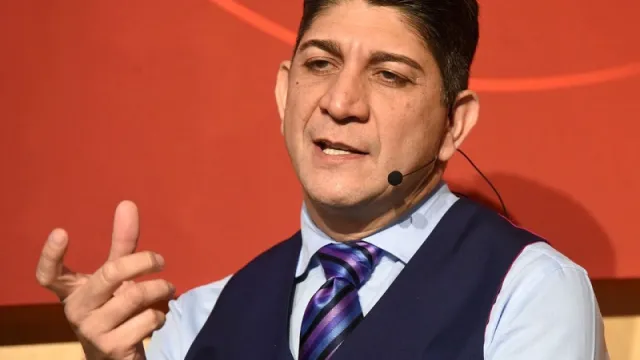Pandemic accelerates use of digital health services in Africa

Pandemic accelerates use of digital health services in Africa
An increasing number of people across Africa are turning to smartphones to access health services signaling a huge potential for countries to offer healthcare via digital platforms.
This was a key outcome of telco company Vodacom’s e-health policy paper released recently as part of the Africa.connected campaign.
The campaign, which was launched earlier this year by telcos Vodacom, Vodafone and Safaricom, seeks to accelerate economic recovery across Africa by helping drive digital inclusion.
The first of a series of six policy papers, the e-health paper provides key insights around the role of technology in elevating the healthcare sector – a focus area of development that has been brought to the fore by COVID-19.
On account of the research and personal insights from recipients across the continent whose lives have been changed because of these services, Africa is on the cusp of digital health transformation.
Vodacom Group CEO Shameel Joosub says: “In many ways, the pandemic has also opened our eyes to new possibilities in the healthcare space. Our ability to deliver on the promise of digital solutions at scale presents enormous opportunity - not only when it comes to the reach of healthcare services, but also to dramatically improved health outcomes at decreased costs.”
The report also paints the picture of a healthcare sector that is under transformation.
Read also: Kagwe puts hospitals charging for Covid-19 jabs on notice
While governments are accelerating formal digital health strategies, 41 out of 54 African countries have a digital health strategy in place where consumers are steadily increasing use of digital health services via smartphones.
It is forecast that by 2025, the use of smartphones in sub-Saharan Africa will surge by almost 70 per cent.
As a result, informal use of digital healthcare solutions has increased, with 41 per cent of internet users across Africa regularly using their mobile phones to search for health information.
Digital health apps have also seen increased usage during the pandemic.
According to Apptopia, the Byon8 app, which offers access to online doctors and symptom check-ups, there has been 40 per cent increase in engagement since March 2021.
Growing numbers of private sector players are also entering the sector to meet this demand.
Though the rise in engagement with informal healthcare systems is creating new opportunity, there is also significant risk in circumventing formal systems.
Concerns range from privacy and the security of personal data to medical misinformation, which is a very real threat when it comes to social media.
The report confirms that 69 per cent of South Africans and 55 per cent of Kenyans report that they’ve seen information that is obviously false or untrue on social media.
Further, the report suggests that the architecture of a national health ecosystem must be led by the government in order to avoid the risks associated with healthcare workers and citizens going outside of formal systems.
As such, the report calls for more partnerships between the public sector and digital health providers on formal systems.
From there, the government can more effectively manage the digital health ecosystem, encouraging the integration of effective start-ups into formal systems and regulating those that could cause harm and spread misinformation.
Lastly, the findings of the report say that success will depend on the sector’s ability to leverage the informal within the formal.
Given the pervasive use of social media, apps and internet searches, it’s necessary to find a way of using these tools safely within the national health ecosystem.
Vodacom’s Mum & Baby service in South Africa is a good example of how this can work successfully.
Mum & Baby provides free information about pregnancy and childcare via mobile devices for parents-to-be.
The service includes regular text messages, articles, tutorials, videos, an immunization calendar, and a pregnancy medicine checker.
This service has proved particularly helpful in rural areas where families often battle to access health centres.



